What is Bovaer and why are we saying no?
Bovaer has hit the headlines as a 'quick fix' tool for mitigating methane from cattle, but let us tell you why our organic cattle will never be eating this synthetic feed.
As climate change becomes an increasingly urgent issue, cows often find themselves in the spotlight due to their methane emissions. Methane is a potent greenhouse gas, and the digestion of grazing animals contributes significantly to its presence in the atmosphere. However, reducing livestock’s environmental footprint doesn’t mean oversimplifying the issue or ignoring broader systemic challenges.
As an organic meat company, we are deeply committed to maintaining the integrity of organic farming standards which means avoiding any feed additives, despite its potential to reduce methane emissions from cattle.
To fully understand why we choose not to use Bovaer, it's essential to consider how Bovaer is produced and its overall environmental impact.
What Is Bovaer?
Bovaer is a feed additive designed to reduce methane emissions from ruminants such as cows. It works by inhibiting a specific enzyme in the cow’s digestive system, reducing the production of methane during digestion. Bovaer can potentially reduce methane emissions by up to 30-50%, which has drawn attention as a tool for mitigating climate change, especially in agriculture.
How Is Bovaer Produced?
Bovaer is a synthetic compound that is created through a series of industrial chemical processes. The primary active ingredient in Bovaer is 3-nitrooxypropanol (3-NOP), a chemical compound that works by interfering with the microbial activity in the cow’s stomach responsible for methane production. While Bovaer is effective in reducing methane emissions, the production process involves several steps that require energy and resources, which can have environmental consequences.
Chemical Synthesis: Bovaer is synthesised in a laboratory using petrochemical-derived raw materials. This synthetic process requires significant energy inputs, often from fossil fuels, contributing to carbon dioxide (CO₂) emissions.
Manufacturing Scale: As Bovaer is produced on an industrial scale to meet global demand, there are concerns about the energy consumption and the associated greenhouse gas emissions during production.
Distribution and Storage: Once produced, Bovaer must be transported to farms around the world. The logistics of distribution, including packaging and storage, can also contribute to the overall carbon footprint of the product.
Waste and By-products: As with most industrial-scale chemical manufacturing, the process generates waste by-products that need to be managed and disposed of safely. Improper handling of these materials could have harmful environmental consequences.
Proponents of its use argue that while the production of Bovaer does contribute to greenhouse gas emissions, its potential to reduce methane emissions from cattle (arguably a much more potent greenhouse gas) offsets the climate impact. This tradeoff between the production of Bovaer and its effectiveness in mitigating methane emissions is a key part of the debate in the agricultural sector.
Why Organic Farms Say No To Bovaer
From an organic perspective, we choose not to use Bovaer for several reasons:
Synthetic Nature: Organic farming relies on natural processes and inputs, and Bovaer is a synthetic chemical product. Organic standards prohibit the use of synthetic additives unless explicitly allowed by regulatory bodies, which is not the case for Bovaer.
Energy and Resource Use: The production of Bovaer, due to its reliance on petrochemicals and fossil fuel-based energy, doesn’t align with the principles of sustainability that underpin organic farming. We believe in reducing the carbon footprint of agriculture through practices like regenerative farming and natural feed solutions rather than relying on synthetic chemicals.
Long-Term Sustainability: While Bovaer may reduce methane emissions in the short term, its long-term environmental impact, including the carbon footprint of its production and potential unintended consequences of its use, is still being studied. Organic farming aims to work in harmony with nature, and we are cautious about adopting technologies whose long-term effects are unclear.
Commitment to Soil Health and Biodiversity: Organic farming promotes the health of ecosystems, including the soil, and encourages biodiversity. We prioritise natural farming systems that build soil health and support a wide variety of plants and animals, rather than relying on synthetic additives to manage emissions.
How Organic Farming Helps Climate Change
When the environmental impact of cattle farming is discussed, it is invariably in relation to industrial farming with no concessions made to the positive environmental impact that organic farming can have . The Soil Association states that "organic and grass-fed farming methods have been found to have many positive environmental impacts”.
It is true that organic cattle produces methane, so how can organic still be beneficial?
Rotational Grazing: Well-managed grazing systems enhance carbon sequestration in the soil and allows pastures to regenerate
You Are What You Eat: Just like with us, diet plays an important role in keeping organic cattle’s digestion in healthy order. The use of natural feed ingredients like legumes, grasses, and herbs help mitigate methane production without the need for additives.
Selective Breeding: By breeding livestock for traits such as greater feed efficiency or lower methane emissions, organic farmers can reduce emissions over time without relying on synthetic chemicals.
Natural Fertiliser: As organic cattle graze they fertilise the soil by spreading their manure. This feeds nutrients to the plants and organisms in the soil, improving soil health, and removing the need for energy intensive fertilisers.
From Our Organic Fields To Your Table
As an organic meat producer, we are deeply committed to producing high-quality, sustainable food while maintaining the integrity of organic farming principles. While Bovaer offers a potential solution to reducing methane emissions from livestock, its synthetic nature and production process are not aligned with the organic standards we uphold.
Instead, we focus on natural, regenerative farming practices that support biodiversity, enhance soil health, and ensure long-term sustainability.
You can always trust in our organic range.
From our organic fields to your table.
Nothing added.

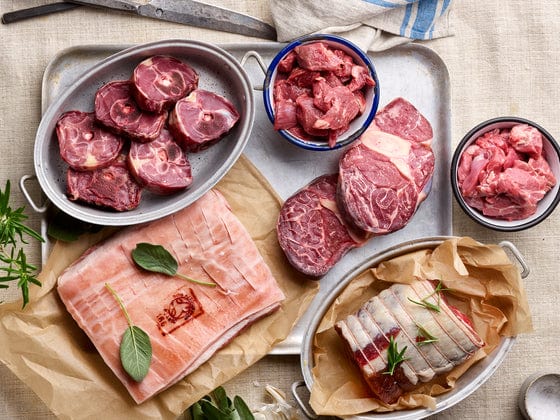
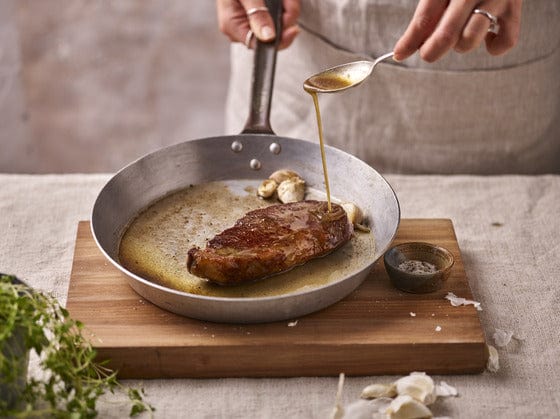
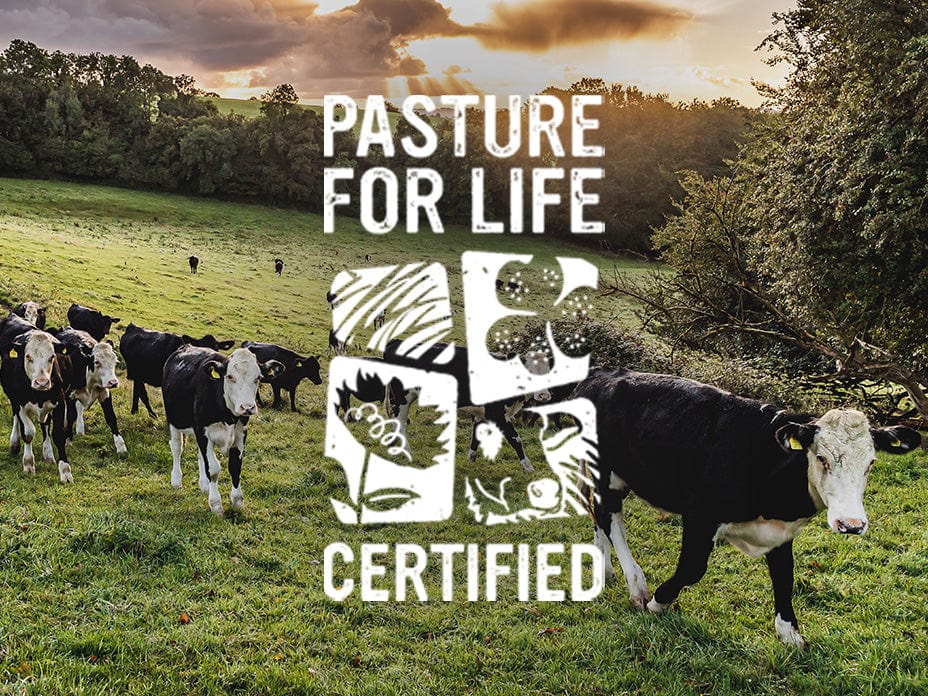
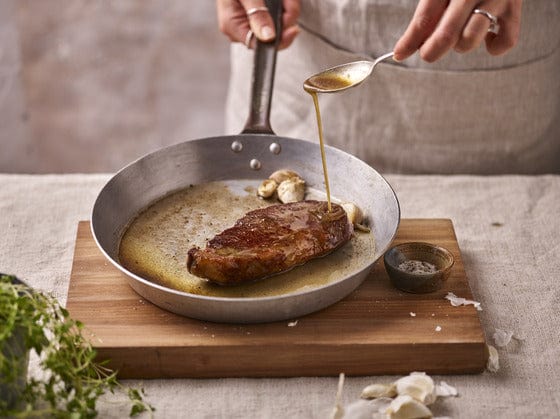
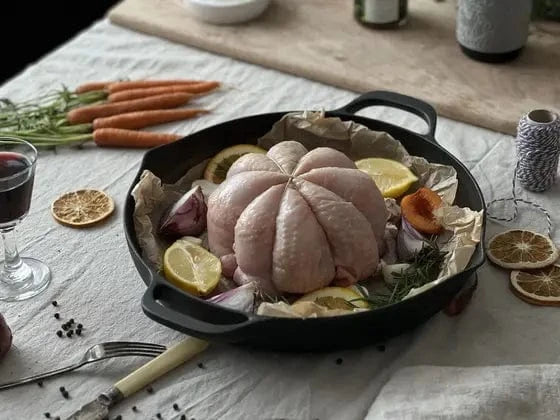


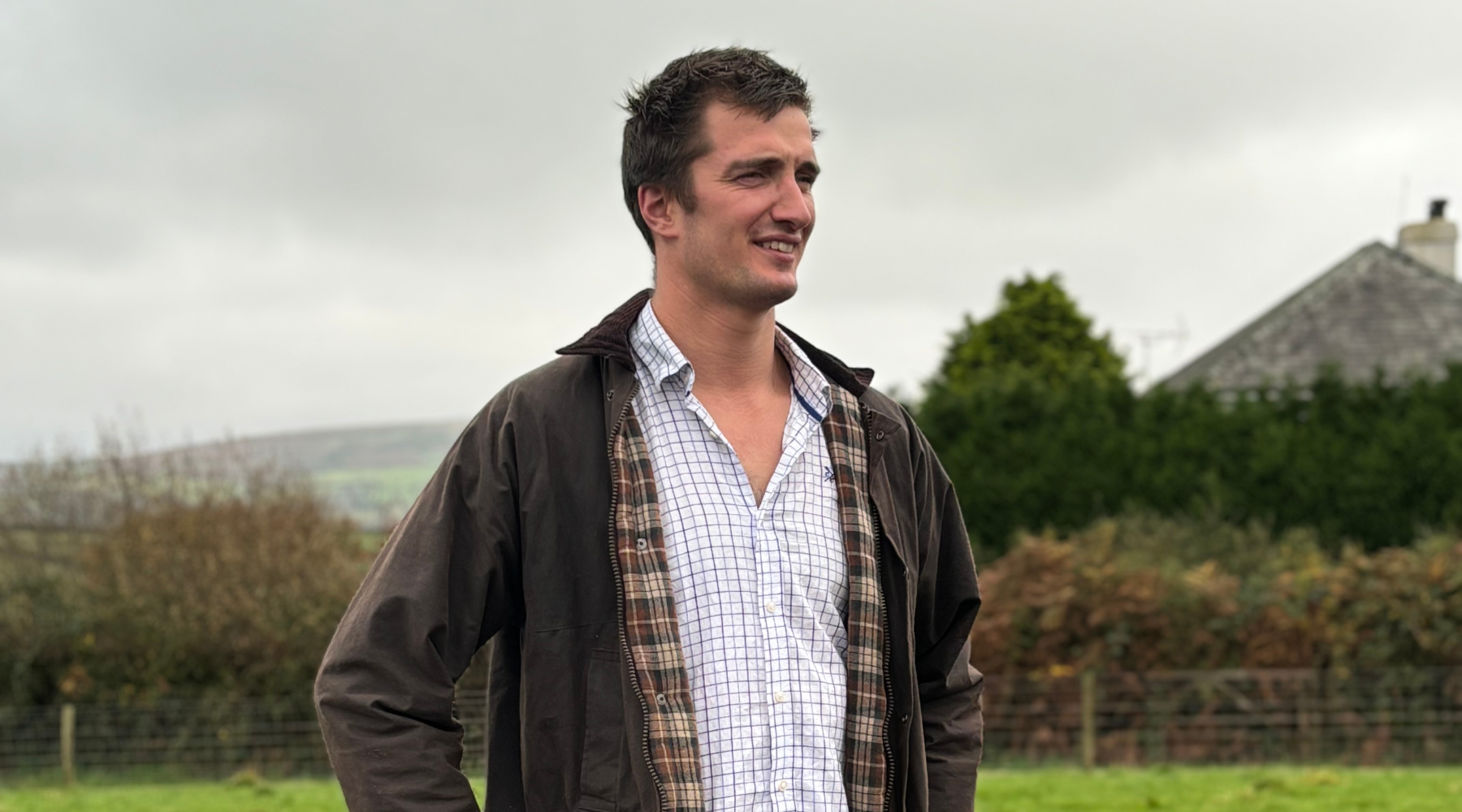
23 comments
discount pharmacies
Excellent blog post. I absolutely appreciate this site. Continue the good work!
Excellent blog post. I absolutely appreciate this site. Continue the good work!
Michael
I love eating natural food and meat !! Not shove down my throat chemical to my body just like visiting doctor and giving me medicine for my health that’s killing me , it’s better find way to fight for best healthy
I love eating natural food and meat !! Not shove down my throat chemical to my body just like visiting doctor and giving me medicine for my health that’s killing me , it’s better find way to fight for best healthy
Julie
The effects of this will be wide spread as their dung contains bovaer and spread in fields leeching into nearby waterways also spread as fertiliser and end up on grains and veg
The effects of this will be wide spread as their dung contains bovaer and spread in fields leeching into nearby waterways also spread as fertiliser and end up on grains and veg
Martin
The problem is, is when the food industry decide to use synthetic elements as a ‘trial’ in animal feed and on to the consumer without adequate prior notification, is unacceptable. Regardless of what the FSA or anyone else says! Plus organic should mean no chemical based additives.
The problem is, is when the food industry decide to use synthetic elements as a ‘trial’ in animal feed and on to the consumer without adequate prior notification, is unacceptable. Regardless of what the FSA or anyone else says! Plus organic should mean no chemical based additives.
Lady Jan Falkiner
Thank you for the Bovaer explanation, much appreciated.
Thank you for the Bovaer explanation, much appreciated.
Eileen Riches
I listened to a programme on BBC Radio 4 about this and didn’t like what I heard. I admit I’m not a big meat eater but when I do eat it, I choose organic.
Why interfere with a cow’s digestive system when there are other alternatives for methane reduction?
Thank you for the detailed explanation. Let’s hope the government doesn’t interfere.
I listened to a programme on BBC Radio 4 about this and didn’t like what I heard. I admit I’m not a big meat eater but when I do eat it, I choose organic.
Why interfere with a cow’s digestive system when there are other alternatives for methane reduction?
Thank you for the detailed explanation. Let’s hope the government doesn’t interfere.
Denise
Delighted to hear you are not involved in this lunatic project, we have to fight this out of control nonsense with all our might.most of us try our best to eat as healthy as possible
hence buying organic but we are truly up against it with all the evil that is being forced upon us.
I have never felt the need more than i do now to support the good farmers 100%
thank you for all you do
Delighted to hear you are not involved in this lunatic project, we have to fight this out of control nonsense with all our might.most of us try our best to eat as healthy as possible
hence buying organic but we are truly up against it with all the evil that is being forced upon us.
I have never felt the need more than i do now to support the good farmers 100%
thank you for all you do
Richard
Thanks for this information on Bovaer and the reassurance you will not be using it.
Thanks for this information on Bovaer and the reassurance you will not be using it.
Sarah
WELL DONE for standing up against this and letting us know that you will not be using this additive. I, for one will not be supporting any company that promotes it.
Keep up the good work and thank you xx
Sarah xx
WELL DONE for standing up against this and letting us know that you will not be using this additive. I, for one will not be supporting any company that promotes it.
Keep up the good work and thank you xx
Sarah xx
Christine Murray
I do not know of anyone who wants this chemical introduced into our food chain. Hopefully organic will continue to mean uncontaminated by these noxious substances.
I do not know of anyone who wants this chemical introduced into our food chain. Hopefully organic will continue to mean uncontaminated by these noxious substances.
jan
Thanks for this! I’d just emailed you about it ans was hoping I would get as welcome an answer as I did when I asked previously about potential mRNA injections for the animals. I’m relieved and delighted to be reassured. now I need to source clean dairy. Any advice will be welcome on that score.
Thanks for this! I’d just emailed you about it ans was hoping I would get as welcome an answer as I did when I asked previously about potential mRNA injections for the animals. I’m relieved and delighted to be reassured. now I need to source clean dairy. Any advice will be welcome on that score.
Mikalina
And, of course, the poor cows!! What does it do to them? Why would we remove one of their essential stomach components? Essential for their digestion, their health, the own ‘biome’. More methane is being released due to earth warming than delivered by cows. Secondly, what does it do to the ‘natural fertiliser’ produced by the cows? What does the new ‘cowpat’ transmit to the soil? Microbe interference? “Poison”?
And, of course, the poor cows!! What does it do to them? Why would we remove one of their essential stomach components? Essential for their digestion, their health, the own ‘biome’. More methane is being released due to earth warming than delivered by cows. Secondly, what does it do to the ‘natural fertiliser’ produced by the cows? What does the new ‘cowpat’ transmit to the soil? Microbe interference? “Poison”?
Amanda Tait
Thank you for the information. It was interesting and useful. Ethics in food production is so important. Orher commentators mention milk without this tampering if anybody would share their supply source that would be great.
Thank you for the information. It was interesting and useful. Ethics in food production is so important. Orher commentators mention milk without this tampering if anybody would share their supply source that would be great.
Deborah Prichard
So very pleased to hear this! Absolutely no need to feed chemicals to animals. Well done for continuing to stay organic and use traditional farming methods. And THANK YOU!
So very pleased to hear this! Absolutely no need to feed chemicals to animals. Well done for continuing to stay organic and use traditional farming methods. And THANK YOU!
Julie Melbourne
Ditto everything mentioned in the previous comments. Also, I’m very happy for the animals themselves! Goodness knows what damage these chemicals do to their bodies, especially in the longer term. As a retired homeopath, I’m interested to know if any of your farmers use homeopathic remedies as treatment or prophylaxis for their cattle. There are studies showing how homeopathy can prevent the spread of diseases in cattle and it’s possible that a homeopathic vet might prescribe remedies to reduce “gas” (as in humans)! Of course, the Royal College of Vetinerary Surgeons would not approve (no £££ in that), but homeopathy is not illegal and, unlike other products, is completely “safe and effective.”
With many thanks and best wishes to all at Eversfield for a very happy Christmas and New Year!
Ditto everything mentioned in the previous comments. Also, I’m very happy for the animals themselves! Goodness knows what damage these chemicals do to their bodies, especially in the longer term. As a retired homeopath, I’m interested to know if any of your farmers use homeopathic remedies as treatment or prophylaxis for their cattle. There are studies showing how homeopathy can prevent the spread of diseases in cattle and it’s possible that a homeopathic vet might prescribe remedies to reduce “gas” (as in humans)! Of course, the Royal College of Vetinerary Surgeons would not approve (no £££ in that), but homeopathy is not illegal and, unlike other products, is completely “safe and effective.”
With many thanks and best wishes to all at Eversfield for a very happy Christmas and New Year!
Kerry
Thank you for the confirmation and for providing the sensible additional information.
Thank you for the confirmation and for providing the sensible additional information.
Fiona
Delighted to have confirmation that you will NOT be using Bovaer – I have had to ‘check’ all other dairy product producers that I purchase from – though some are now "banned’ from my shopping list. I freely confess to being a tea-aholic and consume a lot of milk, my new preferred producers – thankfully I am assured they, like you refuse to use this chemical additive. Your work and ethics are deeply appreciated – THANK YOU ;)
Delighted to have confirmation that you will NOT be using Bovaer – I have had to ‘check’ all other dairy product producers that I purchase from – though some are now "banned’ from my shopping list. I freely confess to being a tea-aholic and consume a lot of milk, my new preferred producers – thankfully I am assured they, like you refuse to use this chemical additive. Your work and ethics are deeply appreciated – THANK YOU ;)
AMG
Have been your customer for a couple of years now and I’m so pleased to read that you will not be using Bovaer in your cattle feed.
I am interested in the health implications of this product on our food and would not entertain buying produce from anyone who uses it.
Now I just have find a supplier who can offer Bovaer free milk and dairy produce from organic grass fed cattle as I will be dropping the supermarkets after their involvement in this shameful exercise.
Have been your customer for a couple of years now and I’m so pleased to read that you will not be using Bovaer in your cattle feed.
I am interested in the health implications of this product on our food and would not entertain buying produce from anyone who uses it.
Now I just have find a supplier who can offer Bovaer free milk and dairy produce from organic grass fed cattle as I will be dropping the supermarkets after their involvement in this shameful exercise.
Jennifer Hall
Thank goodness you and other ethical farmers who care for their animals and the public are not using g the deadly Bovier………I and many others are boycotting the supermarkets that are se.ling products that come from cows fed with this poison…The rats they tested it on all got cancer,and were sterilised…..climate cha nge does not exist,….andcows make no difference…
Thank goodness you and other ethical farmers who care for their animals and the public are not using g the deadly Bovier………I and many others are boycotting the supermarkets that are se.ling products that come from cows fed with this poison…The rats they tested it on all got cancer,and were sterilised…..climate cha nge does not exist,….andcows make no difference…
Richard
Glad to hear you will not be using Bovaer, I would stop buying your meat too if you did use it. Cow farts are not causing climate change, this is pure pseudoscience, they want us to stop eating meat, so they want you to feed the cows petrol to poison our food and force us to eat insects instead. Humans produce methane and carbon dioxide, so next they’ll want to feed us petrochemicals too to stop us farting, poison us and then the final solution kill us all off to save the planet.
Glad to hear you will not be using Bovaer, I would stop buying your meat too if you did use it. Cow farts are not causing climate change, this is pure pseudoscience, they want us to stop eating meat, so they want you to feed the cows petrol to poison our food and force us to eat insects instead. Humans produce methane and carbon dioxide, so next they’ll want to feed us petrochemicals too to stop us farting, poison us and then the final solution kill us all off to save the planet.
Marlene
So pleased you are not using bovaer in cattle feed. I would honestly have become vegetarian if you were using it
So pleased you are not using bovaer in cattle feed. I would honestly have become vegetarian if you were using it
sam
Have there been any long term safety trials on cows or on humans and especially young children ingesting milk from cows fed Bovaer?
If not it shold not be added to their feed
Have there been any long term safety trials on cows or on humans and especially young children ingesting milk from cows fed Bovaer?
If not it shold not be added to their feed
Dulcie Harris
I’m so pleased hear this, I actually came into the website today to check this as I’m very concerned regarding the effects of Bovier and its long term use. If you was using it I sadly would have had to leave so hearing you are not I’m over joyed to be able to get my quality products from a reliable and organic source. Thank you
I’m so pleased hear this, I actually came into the website today to check this as I’m very concerned regarding the effects of Bovier and its long term use. If you was using it I sadly would have had to leave so hearing you are not I’m over joyed to be able to get my quality products from a reliable and organic source. Thank you